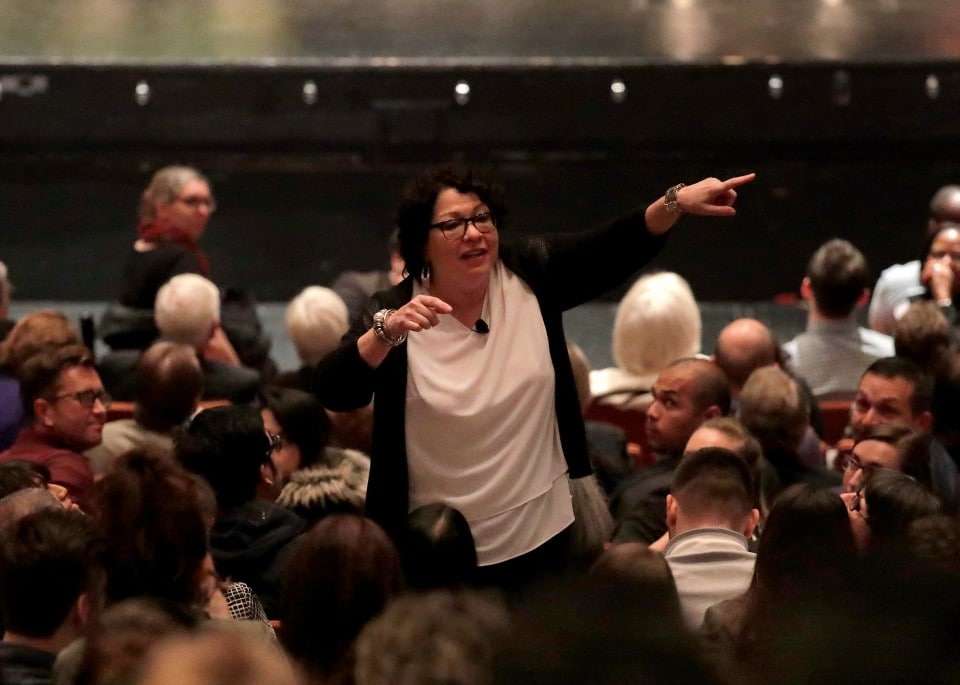The Volokh Conspiracy
Mostly law professors | Sometimes contrarian | Often libertarian | Always independent
Justice Sotomayor's advice for Senate judicial confirmations

Last night, Justice Sonia Sotomayor delivered the 18th annual John P. Frank lecture at Arizona State University. According to this ASU news report, much of the lecture focused on the current judicial confirmation process. With a Supreme Court nomination pending, Sotomayor's remarks are worth considering.
From the ASU report:
Supreme Court Justice Sonia Sotomayor said the confirmation process for high-court nominees is essentially useless because the public wants to know how a candidate would rule - something she told a crowd at Arizona State University that no good judge would predict.
"What you want is for us to tell you how as a judicial nominee we're going to rule on the important issues you find vexing," she told the audience at ASU Gammage on Monday night.
"Any self-respecting judge who comes in with an agenda that would permit that judge to tell you how they will vote is the kind of person you don't want as a judge," she said. . . .
"Do they treat others with respect and dignity? Find out whether they have ruled in ways in which they expressed a difference with their personal feelings, because a judge who can't point to a decision that's different from how they personally feel is not a judge who's following the rule of law."
Justice Sotomayor also expressed concern about the relative lack of diversity on the Supreme Court, but not the sort of diversity that commentators typically focus on.
"We have no criminal defense attorney on the court," she said. "We have only one civil rights lawyer - Ruth Bader Ginsburg."
"Most of the practice of law in this country is done by solo lawyers or small firms," she said, but only two justices have experience with that type of law, and none is experienced in environmental or education law.
"That's the diversity that concerns me the most."


Show Comments (0)